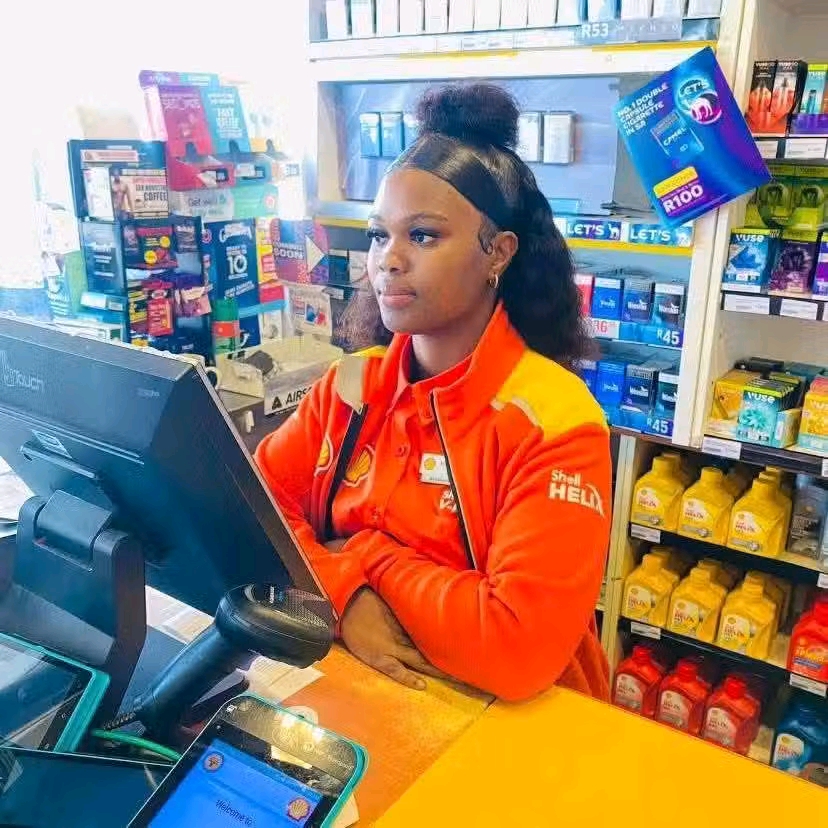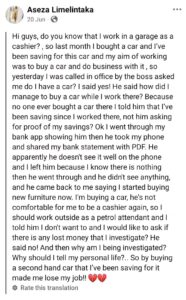
A young Cape Town woman, Aseza Limelintaka, has made headlines after reportedly being fired from her job at a Shell petrol station — not for misconduct or theft, but for simply buying a car.

According to Aseza, her boss questioned how she could afford to purchase a vehicle while working at the station. Shockingly, she claims that her employer went as far as inspecting her personal phone and bank statements in an attempt to “prove” she was involved in some kind of wrongdoing. Despite not finding any evidence of theft or misconduct, he allegedly fired her anyway.
“He said there was no way I could afford a car with the salary he was paying me,” Aseza shared. “So I asked, ‘Is there any money missing?’ and he said no. Then why am I being investigated?”

Aseza said the entire experience left her confused and deeply hurt. She had been working hard, managing her finances responsibly, and had finally taken a step forward in her life by purchasing a car — a symbol of independence and progress. Instead of being celebrated, she says she was met with suspicion and judgment.
The dismissal has sparked public outrage, with many calling it a blatant case of unfair treatment and abuse of power. Social media users across South Africa have rallied behind Aseza, expressing anger at the way her personal success was used against her.
The incident raises serious questions about workers’ rights, employer boundaries, and privacy. Many online commenters have called for labor authorities to intervene, saying that employers should not have the right to police their employees’ personal lives or question how they manage their earnings, especially in the absence of any misconduct or financial irregularities.

“This is not just about a job,” one supporter wrote online. “It’s about a woman being punished for progressing in life. We cannot allow this kind of exploitation and control to continue.”
Labor experts say if Aseza’s account is accurate, her dismissal may amount to constructive or wrongful termination. Employees are protected under South African labor law against being fired without just cause, and privacy laws also prohibit unwarranted access to personal data without consent.
As for Aseza, she says she’s determined to fight for justice. “I won’t stop speaking out,” she said. “I did nothing wrong. I worked for that car. I earned it.”

The story has sparked a broader conversation on classism, power dynamics in the workplace, and the barriers that often greet young Black professionals when they try to uplift themselves. Aseza’s experience has become a rallying cry for fairness, dignity, and the right to succeed without fear.
**Do you think she was treated unfairly? Should legal action be taken?**


